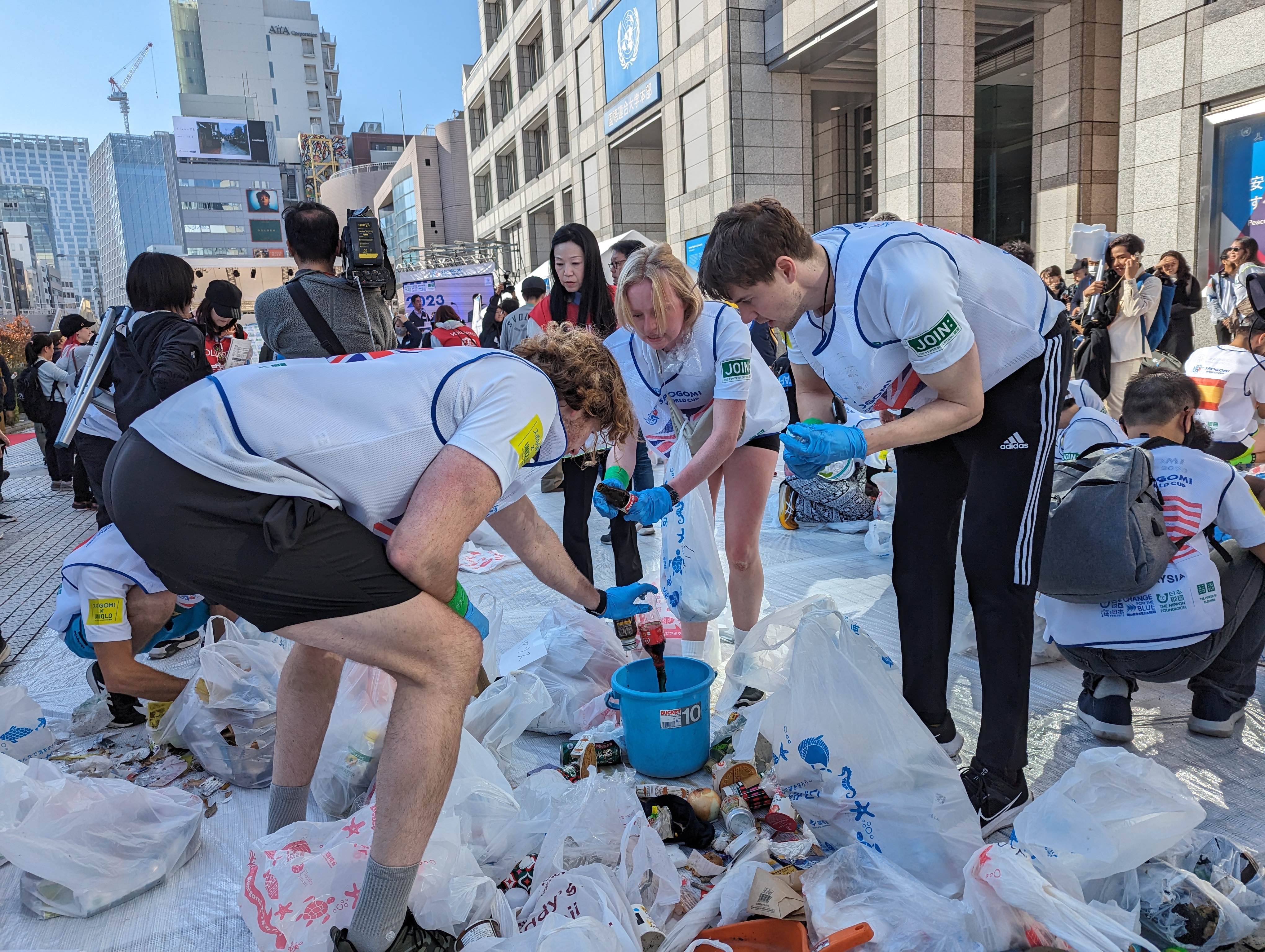The litter picking world cup trophy is not coming home this year after a triumphant inaugural win from the British team in 2023.
Bella Spencer, Hannah Terrell and Hannah Hunter could not replicate the success of Sarah Parry, Alexander Winship and Jonathan Winship at the last Spogomi World Cup, instead finishing 13th out of 34 teams.
Spogomi — which originates from Japan and is named from sport and the Japanese word for rubbish, gomi — involves teams of three racing against the clock to collect and correctly sort as much litter as possible within a designated area. Points are scored for both quantity and types of rubbish.
• Meet the hotshots hoping to clean up in the litter-picking world cup
Japan won the second edition of the event, held again in Tokyo’s bustling Shibuya district on October 29. The German team came second with Morocco taking third.
The Japanese team boasted of training for more than a year to secure the win.
Altogether, 879kg of rubbish were collected from the streets after two 45-minute sessions on the final day of President Trump’s visit to the Japanese capital.

The winning Japanese team at the Spogomi World Cup in Tokyo

Each type of litter is worth a different number of points, and competitors have 20 minutes to sort the litter after collecting it. Sheer weight is not the determining factor.
This year cigarette butts were 50 points per 100g, plastic bottles were 25 points per 100g, cans were 15 points per 100g, burnable rubbish such as paper, plastic bags and cloth 10 points per 100g and non-burnable waste such as glass, batteries and metals 5 points per 100g. Collecting bulky items such as fire extinguishers, rice cookers and baby strollers led to a 100-point deduction.
Players could not be further than 10 metres apart, running was forbidden and each team was accompanied by an official judge who ensured they complied with the rules. Competitors were banned from picking up rubbish already in a bin.
The winning British team in 2023 prioritised items such as scrap metal, which proved a winning strategy as they acquired weightier pieces more quickly. The point system was slightly different this year.
After qualifying in July, Hunter said the team’s experience of competitive rubbish picking had emphasised to them the “huge problem” of litter being discarded in London.
“There was an enormous amount of fly tipping, so we were ankle-deep in trash,” she said.
Spencer, Terrell and Hunter, all in their thirties, from the UK team Trash Talkers, live together in London but hail from Scotland and the north of England. They beat 14 teams in the UK heats at Hackney Marshes in east London in July.
Spencer said: “Throughout the competition, it has been inspiring and humbling to meet people from across the world who are passionate about cleaning up and protecting their local community and the planet.
“The UK can learn so much from Japan, and other cultures, in how to collectively take pride in everyday tasks. Too often we think it’s somebody else’s job to clean up after us, and we don’t respect them enough when they do. But it’s hard and important work.”

The winning British team in 2023
The Spogomi UK representative, Chris Roaf, said: “Using the incentives of sport and competition to save the environment is such an obvious idea, I don’t know why we’re not already playing matches every week.”
The 2023 British team beat 20 countries, collecting 28kg more rubbish than second-placed Japan. They were awarded a set of recycled plastic tongs and the title of “Samurai litter pickers”.


AloJapan.com